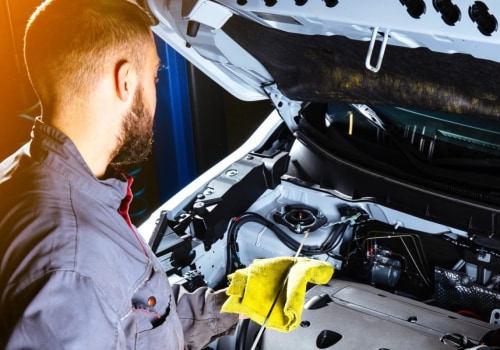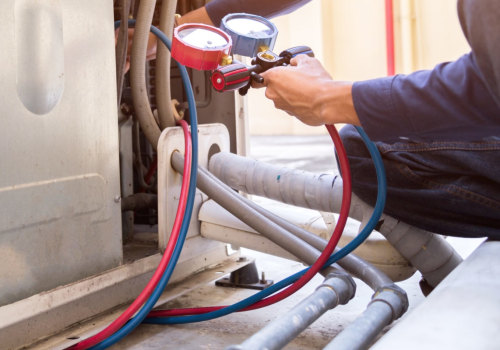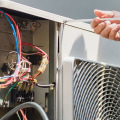Key Takeaways
- Elements to contemplate prior to setting up a resource-saving air conditioning unit - Comprehending resource-saving air conditioning units
- Crucial aspects to assess - Significant factors for analysis
- Financial factors to weigh - Expense considerations
- Setup prerequisites - Installation necessities
- Upkeep and durability - Care and lifespan
- Ecological influence - Environmental consequences
What To Consider Before Installing An Energy-Efficient AC System | Understanding Energy-Efficient AC Systems
Understanding the various aspects of energy efficiency is crucial for anyone considering an upgrade to an energy-efficient AC system. What to Consider Before Installing an Energy-Efficient AC System includes evaluating how these systems operate in comparison to traditional models and the benefits they offer, such as lower utility bills and reduced environmental impact. Energy efficiency ratings play a significant role in identifying top-performing units, as highlighted by the U.S. Department of Energy. Energy-efficient appliances contribute significantly to overall energy conservation, making informed selections key to maximizing savings and performance. A thorough understanding of these factors ensures that homeowners make educated decisions when choosing an AC that meets their needs while supporting energy-efficiency goals.
- Consider the size of the space that needs cooling to ensure the AC system is properly sized for optimal performance.
- Research SEER (Seasonal Energy Efficiency Ratio) ratings, as higher ratings indicate more efficient units.
- Evaluate the initial investment versus long-term savings to determine the best cost-effective option.
- Check for available rebates or incentives for energy-efficient systems to reduce upfront costs.
- Assess the installation costs and find qualified professionals for the installation process.
- Review maintenance requirements and ensure easy access for regular servicing to maintain efficiency.
- Compare features and technology, such as programmable thermostats and smart controls, that enhance efficiency.
What to Consider Before Installing an Energy-Efficient AC System | Benefits of Energy-Efficient Cooling
Energy-efficient cooling systems offer significant benefits beyond just temperature control. Homeowners should carefully evaluate What to Consider Before Installing an Energy-Efficient AC System, especially in terms of how these systems can reduce energy consumption. The Department of Energy highlights the importance of understanding the energy efficiency ratio (EER) of different HVAC systems, which helps gauge their effectiveness in minimizing electricity consumption. Opting for an energy-efficient air-conditioning system can lead to substantial reductions in energy use, ultimately resulting in lower utility bills.
Choosing an energy-efficient AC system not only enhances comfort but also contributes to long-term savings. By decreasing electricity consumption, these systems allow homeowners to invest in other heating system upgrades or home improvements. Knowledge of What to Consider Before Installing an Energy-Efficient AC System empowers consumers to make informed choices that positively impact their budgets and the environment. As energy-efficient systems become increasingly available, improving home comfort while promoting sustainable energy practices becomes an achievable goal.
How Energy Efficiency Ratings Work
Energy efficiency ratings provide a clear framework for understanding the performance of HVAC systems. These ratings indicate the amount of energy used by an air conditioning system in relation to its cooling output. Higher ratings represent better energy-saving capabilities. This is essential for homeowners considering what to consider before installing an energy-efficient AC system. By focusing on energy efficiency ratings, homeowners can make informed choices that reduce electricity consumption and promote conserving energy.
Several key standards exist, such as SEER (Seasonal Energy Efficiency Ratio) and EER (Energy Efficiency Ratio), which help gauge the efficiency of heating and cooling systems. These metrics highlight the balance between energy consumed and the cooling produced, allowing for comparisons among different air conditioning systems. Understanding these ratings can guide consumers in selecting HVAC systems that effectively lower energy consumption while enhancing comfort within the home. Opting for systems with superior efficiency ratings contributes significantly to long-term savings on electricity bills.
Key Factors to Evaluate
Evaluating key factors is crucial, particularly when considering what to consider before installing an energy-efficient AC system. The size and capacity of the system directly influence its efficiency, affecting how well it will cool your space and impact your energy savings. Selecting appliances with proper energy efficiency certifications ensures that they meet national standards, enhancing your energy-saving goals. According to energy.gov, understanding the ratings associated with heating and air-conditioning systems helps consumers make informed choices. Proper evaluation of these elements not only leads to optimal performance but also contributes to long-term satisfaction with your investment in energy-efficient cooling solutions.
- Evaluate the size and capacity to match your space requirements.
- Check for energy efficiency certifications to ensure compliance with standards.
- Understand seasonal energy efficiency ratio (SEER) ratings for informed choices.
- Consider installation costs and potential rebates or incentives.
- Assess the maintenance requirements and expected lifespan of the system.
- Review noise levels to ensure comfort in your environment.
- Investigate additional features like smart thermostats for enhanced control.
Size and Capacity of the System
Choosing the right size and capacity for an air conditioning system is crucial for optimal energy efficiency. What to consider before installing an energy-efficient AC system involves understanding the specific cooling capacity required for your space. An undersized unit will struggle to cool the area, leading to increased energy usage, while an oversized system can cycle on and off too frequently, which also impacts efficiency and comfort. Evaluating the square footage and layout of your home helps in selecting a system with an appropriate seasonal energy efficiency rating (SEER), which directly influences energy consumption.
To ensure that your heating & air conditioning system operates at peak performance, it's vital to match the unit's capacity to your home’s cooling needs. This requires calculating the proper British Thermal Units (BTUs) necessary for effective cooling. An accurate assessment will contribute to better energy efficiency, reducing overall energy costs. Consider factors such as local climate, insulation quality, and the number of windows to inform this decision. This thorough understanding prepares homeowners for What to Consider Before Installing an Energy-Efficient AC System.
Energy Efficiency Certifications
Understanding energy efficiency certifications is essential for making informed decisions about what to consider before installing an energy-efficient AC system. These certifications, such as ENERGY STAR, indicate that the air conditioning units meet specific performance standards for heating and cooling while consuming less energy. Homeowners should look for units with these certifications to ensure enhanced efficiency in both cooling and home heating, leading to reduced energy bills and a lower environmental impact.
Energy efficiency ratings not only highlight the performance of air-conditioning units but also reflect the importance of proper insulation and the use of advanced technology in heating coils. Selecting a system with reputable certifications can lead to significant long-term savings and optimal performance during extreme temperatures. Understanding these ratings allows homeowners to assess their options and choose a system that aligns with their heating and cooling needs effectively.
Cost Considerations
Evaluating costs is a crucial step in what to consider before installing an energy-efficient AC system. Initial investments may appear steep, but the long-term savings on energy bills can justify the expense. Homeowners should weigh the benefits of an energy-efficient system against an older ac-only system, especially when considering potential rebates and incentives. Portable ACs may offer flexibility, but they often lack the efficiency of central systems designed to meet energy efficiency requirements. Ultimately, understanding the financial implications and how they align with your needs will help determine whether to consider replacing your AC system with a newer, eco-friendly option.
| AC System Type | Initial Cost ($) | Energy Efficiency Rating (SEER) | Potential Rebates ($) | Estimated Annual Savings ($) |
|---|---|---|---|---|
| Central AC System | 3,500 - 5,500 | 15 - 20 | Up to 1,500 | 350 - 600 |
| Window AC Unit | 150 - 600 | 10 - 14 | No Rebates | 50 - 150 |
| Portable AC Unit | 300 - 1,000 | 8 - 12 | No Rebates | 30 - 100 |
| Split AC System | 2,500 - 4,000 | 16 - 24 | Up to 1,000 | 300 - 500 |
Initial Investment vs. Long-term Savings
Considering the initial investment is crucial when evaluating energy-efficient options for your new air conditioning system. Energy-efficient models generally come with a higher upfront cost compared to standard AC-only units. However, this is an important aspect of what to consider before installing an energy-efficient AC system. The upfront investment in an energy-efficient type of air conditioning can lead to significant long-term savings on utility bills, making it a financially sound choice over time.
Long-term savings are often overlooked but play a pivotal role in the decision-making process. Energy-efficient air conditioning systems and appliances tend to consume less power, contributing to lower energy bills every month. In some cases, these energy systems can even qualify for rebates or incentives, further sweetening the deal. Balancing the initial expenditure against these potential savings is essential for homeowners looking to make an informed choice regarding their cooling needs.
Available Incentives and Rebates
Exploring available incentives and rebates is crucial for anyone considering energy-efficient air conditioner options. Local, state, and federal programs often provide financial assistance to homeowners who choose higher-efficiency systems. For instance, window ACs that meet specific energy efficiency ratings may qualify for rebates that can offset installation costs. Understanding these incentives is part of what to consider before installing an energy-efficient AC system, as they significantly impact overall expenses.
Tax credits and utility rebates also play a vital role in making HVAC installation options more accessible. Ductless ACs and other energy-efficient air solutions frequently come with incentives designed to promote sustainable living. Homeowners investing in a well-maintained system can benefit not only from lower utility bills but also from financial rewards offered by various programs. Evaluating available incentives is an essential step in what to consider before installing an energy-efficient AC system.
Installation Requirements
Choosing the right location for your new HVAC system is crucial, as it can significantly impact its efficiency and performance. What to consider before installing an energy-efficient AC system includes evaluating the space where the cooling system will operate. Proper placement can make the installation process smoother and enhance the overall effectiveness of the system. It’s essential to ensure that the best-sized HVAC system suits your home’s layout to optimize energy use and lower energy bills. For homes requiring additional heating, taking into account options for a supplementary heating system may also be beneficial. As homeowners discover the benefits of energy-efficient air-conditioners, understanding these installation requirements can lead to long-term savings on energy bills.
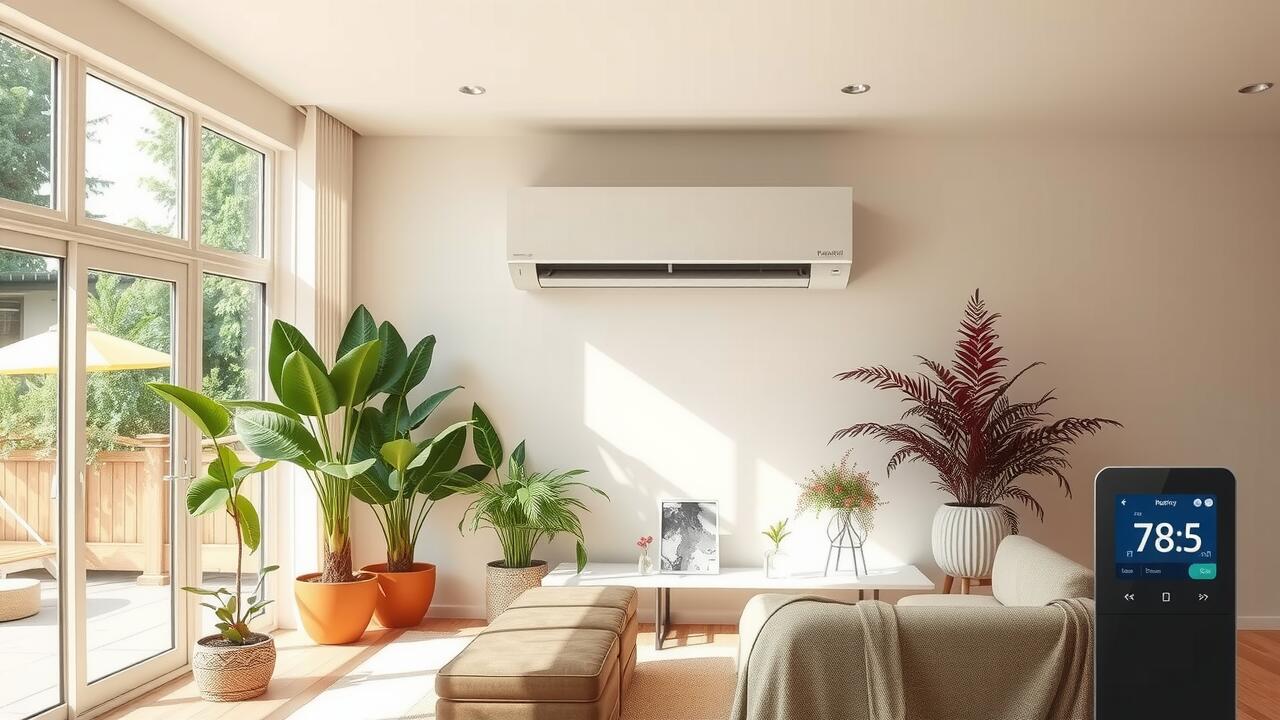
Choosing the Right Location
Selecting the optimal location for your new energy-efficient AC system is critical for maximizing its effectiveness. Factors that influence placement include proximity to heating equipment, the orientation of windows, and the potential for shade from trees or structures. A well-placed AC unit not only provides effective cooling but also enhances the overall performance of your central HVAC system. Evaluating these aspects is essential for a smooth installation process and to optimize energy-saving possibilities.
Ensuring the right location can significantly impact the efficiency of the system, particularly in terms of energy-saving settings. A high-efficiency AC unit, paired with proper installation, can minimize reliance on electric heating coils. This thoughtful placement fosters better airflow and distribution of cool air throughout your home, ultimately leading to substantial long-term savings. What to Consider Before Installing an Energy-Efficient AC System includes assessing space for both the outdoor and indoor units to achieve the best results.
Ductwork and Upgrades
Proper ductwork design is crucial for maximizing the efficiency of any air conditioning system. What to Consider Before Installing an Energy-Efficient AC System includes assessing the existing ductwork to ensure it meets the required cooling capacity for the new cooling equipment. Without adequate airflow, systems may struggle to deliver optimal cooling, leading to increased energy costs and potential discomfort. Ensuring the ductwork can handle the sufficient cooling capacity is vital to avoid efficiency losses and maximize the system's performance.
Upgrades to existing ductwork may be necessary to accommodate new energy-efficient systems. This could involve sealing leaks or replacing outdated components to enhance airflow and maintain full power. Understanding your cooling needs will guide the necessary adjustments to the ductwork, ensuring that the chosen system operates at its best. What to Consider Before Installing an Energy-Efficient AC System includes evaluating these upgrades, which can significantly impact overall efficiency and comfort in your living space.
Maintenance and Longevity
Proper maintenance is crucial for maximizing the longevity and efficiency of your energy-efficient AC system. What to consider before installing an energy-efficient AC system includes evaluating the routine maintenance needs of the highest-efficiency unit. Regular check-ups ensure optimal efficiency and good heating during cooler months. Understanding the expected lifespan of hvac equipment can help homeowners appreciate the potential energy savings over the years. Air conditioner installation may be the first step, but continued care, such as cleaning energy units and checking components, is essential to maintain overall system performance.
Routine Maintenance Needs
Proper maintenance is crucial to maximizing the efficiency of energy-efficient AC systems. Understanding what to consider before installing an energy-efficient AC system involves recognizing the importance of routine upkeep. Central HVAC systems require regular checks on filters, coils, and other components to ensure optimal performance. An energy saver cooling unit is designed for longevity, but neglecting maintenance can shorten its lifespan and compromise the cooling process.
Professional installation sets the foundation for a reliable system, yet even the best-installed systems need attention. Maintaining the conditioning—counterclockwise flow of air is essential for energy-efficient operation. Regular inspections can prevent potential issues and enhance the overall effectiveness of the air conditioning—counterclockwise operation. Integrating a maintenance schedule into your routine ensures that your investment continues to perform at its best for years to come.
Expected Lifespan of the System
The lifespan of an energy-efficient AC system is a crucial aspect to consider, as it directly impacts long-term costs and performance. High-efficiency units are designed to last longer than traditional systems, thanks to their advanced technology and materials. Understanding what to consider before installing an energy-efficient AC system includes recognizing that investing in a high-efficiency unit can ultimately lead to significant savings, especially if managed correctly in line with your heating needs.
Regular maintenance by a professional HVAC technician is essential to ensure that the system continues to operate at the highest efficiency throughout its lifespan. Homeowners should be aware that while the upfront investment may be higher for advanced systems, the long-term benefits, including reduced energy usage and lower cooling costs, make these systems a smart choice. Evaluating what to consider before installing an energy-efficient AC system can aid in determining the best option for your home.
| AC Model | Estimated Lifespan (Years) | SEER Rating | Energy Efficiency Class | Annual Maintenance Cost |
|---|---|---|---|---|
| Trane XV20i | 20 | 22 | A++ | $150 |
| Carrier Infinity 26 | 20 | 26 | A++ | $160 |
| Lennox XC25 | 20+ | 26 | A++ | $140 |
| Rheem Prestige | 15-20 | 20 | A+ | $120 |
Environmental Impact
The benefits of installing an energy-efficient AC system extend beyond personal comfort and cost savings. What to Consider Before Installing an Energy-Efficient AC System includes understanding how these systems promote minimal electricity consumption while providing effective cooling. Systems adhering to Energy Star guidelines ensure optimal seasonal energy efficiency, which can significantly lower your electric bill. Emphasizing HVAC excellence, these efficient air conditioning units also play a crucial role in residential heating, ultimately contributing to a reduced carbon footprint. Regular air conditioner maintenance is essential to maximize performance and longevity, reinforcing the environmental advantages that arise from choosing the right cooling solution.
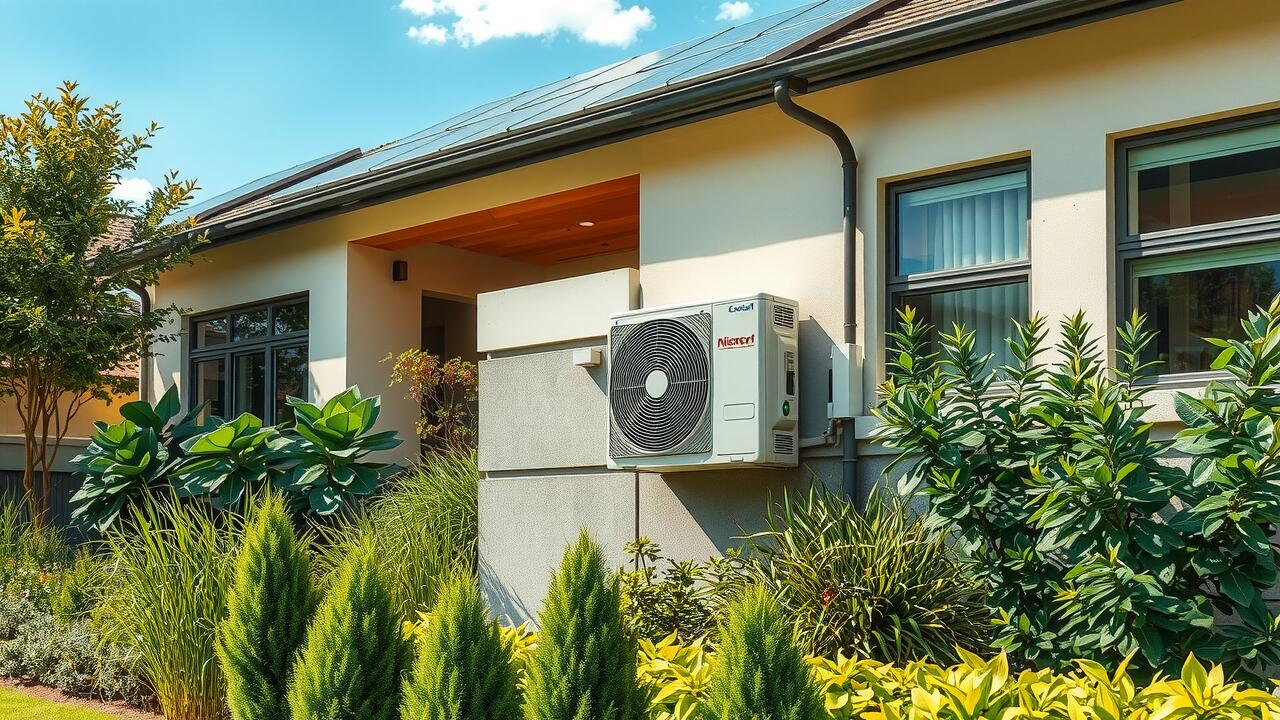
Reduced Carbon Footprint
Energy-efficient AC systems significantly contribute to a reduced carbon footprint by minimizing energy consumption. Selecting a package system or full-house system with dual heating and heat pump capabilities can lead to substantial energy savings. Proper installation plays a critical role in maximizing efficiency. Inadequate insulation can undermine the benefits, leading to higher energy usage for cooling. To truly capitalize on these systems' potential, it's crucial to consider regular maintenance plans that ensure optimal performance and energy efficiency.
The environmental impact of using energy-efficient cooling solutions extends beyond just energy savings. By investing in a system with high energy efficiency ratings, households can drastically lower their greenhouse gas emissions. This is particularly important as heating and cooling are significant contributors to energy consumption in homes. What to consider before installing an energy-efficient AC system includes evaluating both the technology of the system and the surrounding factors that can either enhance or diminish its effectiveness, such as insulation and maintenance practices.
Importance of Refrigerants
Refrigerants play a crucial role in the operation of any air conditioning system, including those designed for whole-house cooling. Choosing the right refrigerant can significantly influence the efficiency and environmental impact of your system. Understanding what to consider before installing an energy-efficient AC system involves evaluating the type of refrigerant used. Certified HVAC contractors often recommend options that meet current efficiency standards and promote sustainability. This ensures that your system not only performs well but also contributes to a more eco-friendly environment.
Proper maintenance of the refrigerant system is essential for achieving optimal performance throughout its lifespan. Regular checks for leaks and replacement of aging refrigerants help prevent efficiency losses and reduce heating and cooling costs. Affordable options for retrofitting older systems with modern refrigerants can enhance performance without requiring a complete system overhaul. Being informed about the importance of refrigerants is vital for homeowners considering installing an energy-efficient AC system and maximizing their investment.
Conclusion
Installing an energy-efficient AC system requires careful consideration of various factors to ensure optimal performance and longevity. What to Consider Before Installing an Energy-Efficient AC System includes assessing the size and capacity of the equipment, which directly impacts efficient air delivery throughout your space. Maintenance plays a critical role in keeping these systems running smoothly and maximizing their lifespan. Collaborating with qualified contractors can help homeowners navigate the complexities of choosing the right air conditioner btu for their needs, ensuring that the installation aligns with both comfort and energy efficiency goals. Understanding these elements will lead to a more satisfying outcome and a functional cooling environment.
FAQS
What are the key factors to consider when thinking about energy efficient appliances like an AC system for managing cooling costs?
When considering energy efficient appliances, particularly an energy-efficient air-conditioner, it's important to look at the seasonal energy-efficiency rating (SEER). This rating helps you assess how effective the AC system will be in reducing energy consumption. If your current system has a low SEER, you might want to consider replacing your AC system with a newer one, as modern heat pump systems often provide better efficiency and can significantly help with managing cooling costs in your home.
How can homeowners manage cooling costs when selecting an energy-efficient air-conditioner, especially when considering new heating options?
Homeowners tend to discover that various factors come into play when choosing energy-efficient ACs. It’s important to assess your specific cooling needs, local climate, and existing heating systems to effectively manage cooling costs with a new heating solution.
What should consumers keep in mind when looking to discover the benefits of installing an energy-efficient air-conditioner?
When consumers tend to discover the benefits of installing an energy-efficient air-conditioner, they should consider factors such as energy savings, environmental impact, and long-term costs.
What advantages can homeowners expect to discover when choosing energy-efficient air-conditioners, and how do these acs tend to reduce overall home energy costs?
Homeowners can expect to discover various advantages when choosing energy-efficient air-conditioners, such as lower energy bills, improved comfort levels, and reduced environmental impact. These acs tend to utilize advanced technologies that optimize cooling performance while minimizing energy consumption, ultimately leading to significant savings over time.
What steps can homeowners take to discover the best energy-efficient air-conditioner for their needs?
Homeowners can discover an ideal energy-efficient air-conditioner by researching various models, comparing energy ratings, and assessing the specific cooling needs of their home. Additionally, consulting with HVAC professionals can provide valuable insights into the most suitable options available.
What important aspects should one discover about the installation of an energy-efficient air-conditioner?
When considering the installation of an energy-efficient air-conditioner, it is essential to discover factors such as the unit's size, energy ratings, installation costs, and the long-term savings on energy bills. Understanding these elements can help ensure that you make an informed choice that maximizes efficiency and comfort in your home.
What unique features should homeowners discover when comparing energy-efficient air-conditioners for installation?
Homeowners should discover several unique features when comparing energy-efficient air-conditioners for installation, including SEER ratings, inverter technology, and programmable thermostat capabilities. These features can significantly enhance the performance of an energy-efficient air-conditioner and offer additional savings on energy costs over time.
How can consumers discover the best practices for maintaining their energy-efficient air-conditioners?
To effectively maintain your energy-efficient air-conditioner, it is important to discover the benefits of regular servicing, filter replacement, and routine inspections. These practices not only enhance the performance of the unit but also help in sustaining its energy-efficient capabilities over time.
What recommendations can help consumers discover the right energy-efficient air-conditioner for different home environments?
To discover the right energy-efficient air-conditioner for different home environments, consumers should consider factors such as sizing for their space, energy ratings, and specific features that enhance efficiency. Additionally, researching local climate conditions and potential installation requirements can ensure that the chosen unit maximizes energy savings while providing optimal comfort.
How can homeowners effectively discover the right size and capacity for an energy-efficient air-conditioner?
Homeowners can discover the right size and capacity for an energy-efficient air-conditioner by considering their home's square footage, insulation quality, and the typical climate conditions in their area. It’s essential to calculate the BTUs (British Thermal Units) needed for effective cooling to ensure the air-conditioner operates efficiently and maximizes energy savings. This approach will help homeowners discover the best fit for their living spaces, ensuring comfort while reducing energy costs.

